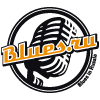http://www.iht.com/articles/ap/2007/05/07/america/NA-GEN-US-Obit-Carey-Bell.php


|
FOR IMMEDIATE RELEASE – MAY 7, 2007
CONTACT: MARC LIPKIN / ALLIGATOR RECORDS / 773-973-7736 x235
EMAIL: publicity@allig.com
CHICAGO BLUES HARMONICA LEGEND CAREY BELL 1936 – 2007
Raucous and exuberant in the great Chicago tradition ... tender introspection, emotional complexity, sensitivity and tonal control."
--LIVING BLUES
"A blues harp master, Carey Bell has jaw-dropping technique…stunning intensity, elegantly lowdown.”
--CHICAGO TRIBUNE
Blues harmonica master Carey Bell died on May 6, 2007 of heart failure in his hometown of Chicago, IL. He was 70. Bell – the 1998 winner of the Blues Music Award for Traditional Male Artist Of The Year – was a veteran of both Muddy Waters’ and Willie Dixon’s bands as well as an award-winning solo artist, and a guest artist on countless blues recordings. Bell's classic, funky and deeply soulful blues place him firmly on the short list of blues harmonica superstars.
Bell was one of the very few harmonica players who didn't learn his craft by listening to old records, but by studying directly under his teachers Big Walter Horton, Little Walter Jacobs and Sonny Boy Williamson II. It didn't take long for Bell to develop his signature "chopped" harmonica phrasing and deep-blues style.
Carey Bell Harrington was born in Macon, Mississippi on November 14, 1936. A fan of Louis Jordan, Bell originally wanted a saxophone, but economic realities forced his grandfather to buy him a harmonica instead. He taught himself to play by the time he was eight, and began playing professionally with his godfather, pianist Lovie Lee, when he was 13. In 1956, Lee convinced Carey that Chicago was the place to be for aspiring bluesmen, and on September 12, 1956 they arrived. Almost immediately, Bell went to see Little Walter perform at the Club Zanzibar at 14th and Ashland. The two became friends and Walter delighted in showing the youngster some of his tricks. Carey went on to meet and learn from Sonny Boy Williamson II, but it was Big Walter Horton who really inspired him and became his mentor.
Carey learned his lessons well but by the late 1950s and early 1960s the gigs were drying up for harp players as the electric guitar began to take over as the predominant instrument of Chicago blues. Bell decided to increase his worth by becoming a bass player (learning the ropes from Hound Dog Taylor). He quickly mastered the instrument and began getting gigs as a bassist with Honeyboy Edwards, Johnny Young, Eddie Taylor, Earl Hooker and Big Walter. While playing bass in Big Walter's band, Bell studied every harp trick in the book first-hand from one of the all-time great harmonica players.
Bell, back on harp full-time, recorded behind Earl Hooker in 1968 for Arhoolie. By 1969 Bell was fronting his own band. His friend, harmonica player Charlie Musselwhite brought him over to Bob Koester at Delmark Records in 1969, who promptly signed Bell and recorded CAREY BELL'S BLUES HARP. Bell spent 1971 traveling and recording with Muddy Waters (he can be heard on Muddy's THE LONDON SESSIONS and UNK IN FUNK albums on Chess). Willie Dixon chose Bell for the featured role in his Chicago Blues All-Stars, with whom Bell worked regularly throughout the 1970s, both touring and recording.
Even though Dixon kept Carey busy, Bell still found time for his own projects. In 1972 he teamed up with his friend Big Walter and recorded what was to be Alligator Records’ second-ever release, BIG WALTER HORTON WITH CAREY BELL. In 1973 he made a solo album, LAST NIGHT, for ABC Bluesway and was featured in 1978 on Alligator’s Grammy-nominated LIVING CHICAGO BLUES series (both with his own band and playing behind Lovie Lee).
By the 1980s Bell had established himself worldwide as a giant among blues harmonica players. He recorded albums as a leader and as a sideman for a variety of labels both in the United States and Europe, and was constantly playing live. In 1990 Bell, along with fellow harpslingers Junior Wells, James Cotton and Billy Branch, got together and recorded the Blues Music Award-winning Alligator album, HARP ATTACK!.
In 1995, Bell's very first full-length solo album on Alligator, DEEP DOWN, secured his reputation as a modern blues legend. His follow-ups, 1997’s GOOD LUCK MAN (which received a Blues Music Award for Traditional Album of the Year), and 2004’s SECOND NATURE (an acoustic album recorded with his guitarist/vocalist son Lurrie Bell), pushed the blues farther out with Bell’s rich vocabulary of deep grooves and contemporary sounds. Most recently, in 2007, Delmark Records released GETTIN’ UP LIVE, a CD/DVD featuring Bell once again performing with his son Lurrie.
Funeral arrangements are still pending. Bell fathered 15 children and is survived by 10.
SELECTED DISCOGRAPHY
1969 Carey Bell's Blues Harp Delmark
1973 Last Night ABC Bluesway / One Way
1977 Heartaches and Pain Delmark
1982 Goin' on Main Street Evidence
*1983 Son of a Gun Rooster Blues
1988 Harpslinger JSP
*1990 Dynasty! JSP
1990 Harp Attack! Alligator
1991 Mellow Down Easy Blind Pig
1994 Harpmaster JSP
1995 Deep Down Alligator
1997 Good Luck Man Alligator
*2004 Second Nature Alligator
*2007 Getting’ Up Live Delmark
*with Lurrie Bell
Blues.Ru -
Íîâîñòè |
Ìóçûêàíòû |
Ñòèëè |
CD Îáçîð |
Êîíöåðòû |
Live Band |
Ôîðóì
ïðàâèëà ôîðóìà